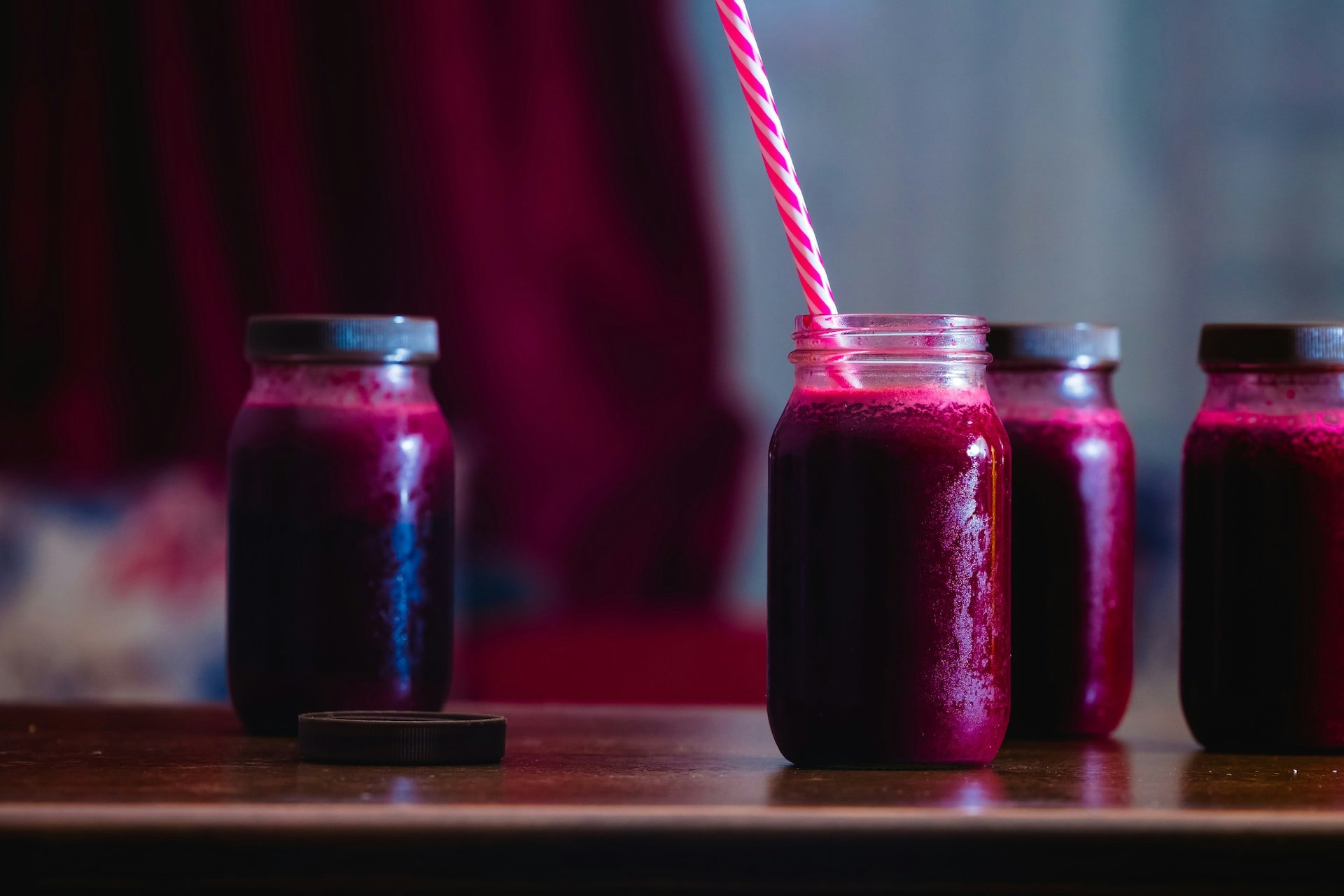On average, an 8-ounce serving of pure beet juice contains 19–22 grams of sugar In fact, its sugar content is reasonably high, compared to other juice ingredients. The exact amount of sugar in beet juice can vary depending on factors like the variety of the beets, their maturity when harvested, and how the juice is prepared.
In this article, we'll discuss the factors that play a role in the amount of sugar in beets and beet juice, along with a few other interesting bits.
How Much Sugar in Beet Juice?
As mentioned, an average, an 8-ounce serving of pure beet juice contains 19–22 grams of sugar. It is important to note that it is natural sugar, comprising about 95% sucrose, 3% glucose, and 2% fructose.
It is worth mentioning that despite the high volume of sugar, beet juice, processed to retain some fiber, does not cause sugar spikes if consumed in moderation. This is because beets are high in fiber, which traps the sugar and slows its absorption into the bloodstream. Beets are a great addition to other vegetable and fruit juices due to it's vibrant color and distinctive flavor.
Factors that Influence the Sugar Content of Beet Juice
It's important to note that the sugar content in beet juice can vary from batch to batch based on various factors. Sugar content in beet juice can be affected by the following factors:
Beet Variety
The sugar content in beet juice can vary depending on the variety of beets used and their unique genetic variations. Sugar beets, for instance, specifically bred for their high sugar content, will have more natural sugars compared to other types of beets.
Maturity of Beets
As beets mature, their sugar content increases. The level of maturity plays a significant role in the sugar levels of beet juice. The longer beets are left to grow before being harvested, the higher their sugar content.
Growing Conditions
Environmental factors, such as soil quality, rainfall, and temperature, can affect the sugar content of beets. Beets grown in optimal conditions tend to have higher sugar content.
Beet Health
The healthiest beets have the highest sugar content. The overall health of the beet plants can be impacted by the presence of diseases or pests.
Storage of Beets
Storage conditions of beets before the juicing process can also alter sugar content. Natural enzymatic processes that occur during long periods of storage could change the natural sugar content of beets.
However, once juiced, the high sugar content in beet juice can act as a natural preservative by reducing the growth of harmful microorganisms. This can help extend the shelf life of the juice without the need for artificial additives.
Processing Methods
The juice extraction method used can impact the sugar content of beet juice. Gentle methods like cold-pressing may retain more sugars compared to methods that involve high heat or extended processing. The efficiency of the juicing process can also play a role, as some methods may extract more sugars from the beets than others.
Drinking beet juice has become a major trend in recent years. The many health benefits of beets and beet juice that people enjoy worldwide today were recognized centuries ago. The ancient Greeks and Romans used beets for their potential health benefits, particularly for their digestive and blood-cleansing properties. Beets were also mentioned in ancient Roman texts for their potential aphrodisiac effects.


Comment